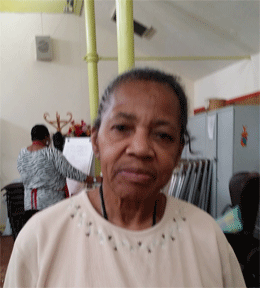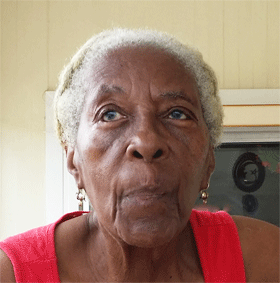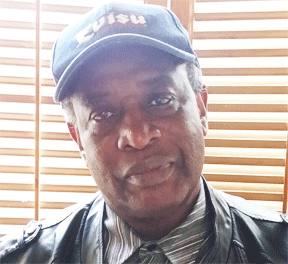Black History Month & Beyond -
Life Stories
'When we look back it is often clear to see how decisions we made in the past shape our lives in the future; sometimes in surprising and unexpected ways.
We have been inspired by the model of Black history month to offer life stories that celebrate the pioneering men and women – daughters, sons, parents, grandparents and great-grandparents – who took the decision to leave their country of birth in the Caribbean and Africa between the 1940s and 1960s with the wish to make a better life for themselves and their families.
We have called this series 'From Over there to Over Here' and we'll introduce you to a new black pioneer every few months. We'd love to get your feedback and questions. Please click here to contact us.'
Sharon Bond, Director, Chiron
Spring
Beryl’s Story
'Over there' for Beryl was Manchester, Jamaica. Beryl arrived 'over here' in England aged just 17 in 1949. She travelled by British Overseas Airways Corporation (BOAC) which has since been replaced by British Airways (BA). This was unusual for that time as most people coming from the West Indies travelled by ship....or boat as we called it!
It was quite a journey to make; on her own away from family and everything familiar. It was also grown-up and exciting, but Beryl’s excitement quickly turned to disappointment. Why? Because the streets were not paved with gold as she had been led to expect. The money that paid Beryl’s fares to England was borrowed. Beryl thought that when she got to England she would be able to pick up gold in the street to send back home to re-pay her fares.
Like many West Indians that came to England in the late forties, fifties and sixties Beryl thought her stay in England would be temporary. She came to a friend who lived in Forest Gate and worked at St Andrew’s Hospital as a nurse. Beryl also got a job at the hospital, working in the kitchen. She was paid 10 shillings a week (50p in today’s money). She “threw a partner or box” each week which took 5 shillings of her earnings. This left her 5 shillings to live on for the rest of the week. Beryl was lucky because her friend took only a small contribution from her toward the rent.
Beryl has now spent 65 years - the majority of her life - in England. She brought up her 5 children in Forest Gate and still lives in East London.
I met Beryl at the community centre she attends in Stratford. She is active and alert. Sometimes she gets up and joins in the Line Dancing. I say to her that in her day I imagine she did a lot of dancing? She smiles and assures me that she was a party girl. Does she still dream of her home town in Manchester, Jamaica? Does she imagine herself back there? Has her life turned out the way she had expected?
You might want to ask Beryl these and other questions yourself. Please click here to send your questions.
Summer
Doreen's Story
'Over there' for Doreen was Plaisance, a village in Guyana, South America. Doreen left Guyana in 1952 to come to England to join her husband, Jastlyn, who had arrived there the previous year.
For Doreen the move to England meant leaving behind four young children with her mother while she and Jastlyn worked to prepare a home they could bring them to.
Doreen recalls that in those early days in England food was still rationed and that her mother on hearing this wondered whether she should send food parcels!
As well the hardships that come with making a life in a new country far away from loved ones, Doreen recalls the many new, unfamiliar and sometimes funny experiences of those early years in her adopted country.
The first time she saw snow, for instance. She remembers walking to the clothing factory where she worked with one of her workmates. Her workmate was white and from Dagenham. They were walking arm-in-arm, supporting each other as they walked along. Doreen wanted to hold the snow. She reached out to scrape some off a wall as they walked. Before she knew what was happening her friend had run off into the factory. She eventually caught up with her friend who told her “when you picked up the snow, I thought you were going to snowball me.” This was Doreen’s induction into a whole new cultural activity!
She also remembers the “pea-soupers” – the heavy blanket of fog that defined British winters up until the 60s. This was fog so dense that you could just see you hand in front of you!
Doreen recalls the great pea-souper of 1952. She was walking home with great difficulty and made out the outline of two policemen in front of her. Knowing the police station was close to her home she thought if I follow close to them I’ll get home. She kept her eyes firmly on them as she walked. Before she realised it she had followed them into the police station. They kindly helped her out and home.
The London of Doreen’s past with trolley buses that often left you stranded, paraffin heaters that kept you confined to one room, heavy snow and fog (smog) that cut your vision down to a matter of feet has, over the years, disappeared. In its stead there is: public transport that is reliable in comparison; central heating that warms the whole house, and, some years, little or no snow in London. What does Doreen miss about the past? What does she like about the present? You may want to ask her these and other questions. Please click here to send your questions.
Autumn
Alex's Story
'Over there' for Alex was Plaisance, a village 6 miles outside of Georgetown, the capital of Guyana and the only English speaking country on the South American continent.
Alex came to England by boat, (a ship) stopping in Italy, Spain and France on his journey. He remembers one of his earliest experiences of racism outside of Guyana taking place in France.
Alex arrived in England on 3rd March 1961 on a nice spring day and made his way to an address in Paddington West London - with the help of a stranger - where he was to live for the next 6 months.
Alex describes himself as an economic migrant. That is to say unlike the nurses, drivers and conductors recruited from the Caribbean with the promise of work and accommodation in response to invitations from a post-war British Government intent on re-building the country, Alex came under his own steam using his own resources to get here.
Like other Caribbean arrivals before him, Alex saw his stay as temporary – maybe five years at the most. However, after a year living in England he decided he would have a better life in Guyana. Here he found himself working in menial jobs earning less money than he had been getting in Guyana. He went to the Labour exchange and asked for help to be repatriated to his home country. He was encouraged to stay and told if he still felt the same after a year to come back and they would see what they could do. During the course of that year he met friends he knew from Plaisance, his home village. The community he was able to form with his friends helped him to feel more settled.
His memories of those early days include how he went about maintaining his independent spirit and connection to his homeland through cricket and politics. Weekends were for socialising and this was done through being part of a cricket team. The Battersea based cricket team was made up of men from different islands in the Caribbean. The team travelled to all areas of London and the Home Counties experiencing and learning the culture of their adopted country as they interacted socially with cricket teams from the host nation.
Politics came later. Speakers Corner in Hyde Park was the place to listen to anyone with an important message to give about the co-existence of black and white people, nationally and internationally. Alex recalls listening to political heavyweights like Stokely Carmichael (Trinidadian), Walter Rodney (Guyanese) and – he says surprisingly - Sammy Davis Junior (American).
Fifty-five years later he realises he has spent more of his life in England than in Guyana. I asked him what he valued about living here? He says the opportunity to further his educational attainment and acquire some economic independence.
You may have other question you might like to ask Alex. Please click here to send your questions.



